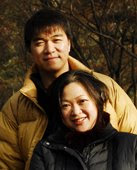Tea in China costs six times as much as gold
By David Eimer in Beijing
Last Updated: 12:30AM BST 24/06/2007
China's stock market may be booming and its house prices soaring, but the hottest investment in the country today comes in the shape of a small, compressed cake that smells vaguely earthy and is wrapped in paper.
Pu'er tea, a strong, aromatic brew from the remote south-western province of Yunnan, has long been prized in China for its medicinal qualities. Now, instead of drinking it, millions of Chinese are hoarding it after the price jumped 50 per cent last year.
Like fine wine, Pu'er tea is considered to improve as it ages. In 2005, 500g of 64-year-old Pu'er tea sold at auction for one million yuan (£66,300) - making it six times more expensive than gold.
The price has been rising since 2003, when investors in southern China and Hong Kong realised that, with a limited amount of tea grown each year, they could drive up its price by storing the tea rather than selling it.
Three weeks ago, an earthquake measuring 6.4 on the Richter scale hit the Pu'er tea-growing region, prompting fears of a shortage and causing a sharp increase in the price of the most recently produced tea - which, because of the lengthy fermentation process, might have been harvested up to two years ago.
At the Maliandao Tea Market in south-west Beijing, Pu'er is sold in 350g cakes which the vendors handle as gingerly as if they were rare antiques.
"The price of new tea has gone up 30 to 50 per cent since the earthquake," said Liu Na of the Che Yun Shan Tea Company.
A cake of two-year-old Ye Sheng Gucha tea costs 260 yuan (about £18), while the 13-year-old tea sells for 1,800 yuan. "It'll double in price in two years," said Mrs Liu.
Such returns are irresistible to a people in the grip of a speculating frenzy. Traditionally, the Chinese are savers, not spenders. But in April and May savings declined for the first time in four years, according to the People's Bank of China, as people sought to cash in on the stock and property markets.
Pu'er tea is seen by some as an even more attractive option.
"You don't have to pay tax when you sell your Pu'er tea," said Mrs Liu.
The red-coloured tea has a distinctive taste, much stronger than green tea. In the Huangshan Feng Tea Shop, the owner, Zhang Sheng Qin, held up a glass and swirled it around. "Good Pu'er tea should be transparent," she said.
"It's good for people who want to lose weight," she added. "Are there a lot of fat people in England? Maybe we can do some business."




No comments:
Post a Comment